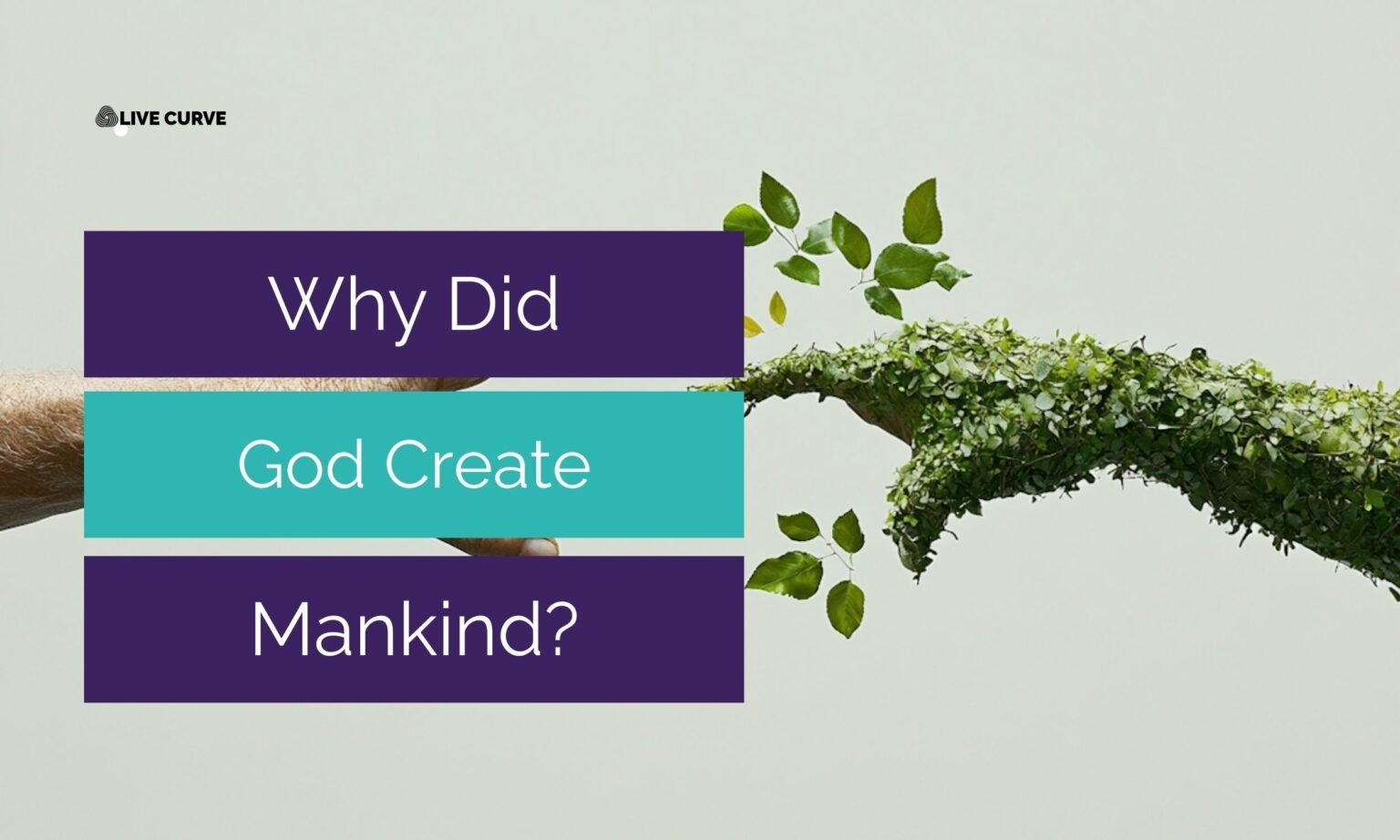When people ask me, “Why did God create us?” I give a clear, two-part answer: God created us to share His goodness and to reflect His glory in everyday life. In other words, “Why did God create us?” is ultimately about purpose, not divine need. Classical Christian teaching holds that God is self-sufficient; creation is a free act that manifests His goodness and glory, not a remedy for lack.
Scripture frames this beautifully. Isaiah says God formed a people “for my glory,” a concise summary that speaks directly to why did God create us—to display who God is through who we become. Paul adds the practical angle: “whatever you do… do it all for the glory of God,” linking purpose to daily decisions at work, at home, and in community. These verses anchor the purpose of life and the meaning of life in God’s character, not our shifting moods.
Historic catechesis makes the same point in everyday language: our “chief end” is to glorify God and enjoy Him forever. That enjoyment isn’t escapism; it’s a way of life—worship, love of neighbor, stewardship, and creativity—that answers why did God create us? with lived habits.
The imago Dei (image of God) gives this purpose a human face. We were made to mirror God’s wisdom, love, justice, and creativity—what I call purpose-in-action. So when I’m pressed again—why did God create us?—I say: to participate in His goodness, reflect His glory, and pursue a life that looks like Him. That is the shortest, most actionable terms, and it’s the foundation for the deeper sections that follow.
Why Did God Create Us: More Perspectives To Consider
To benchmark our answer to “Why did God create us?”, I reviewed some other platforms. The consensus is remarkably consistent: God creates freely, out of fullness—not need—for His glory, and invites us into a relationship that becomes the purpose of life and the deepest meaning of life.
GotQuestions leads with a simple, devotional frame: God created us for His pleasure and so we could know Him—anchored in Psalm 8 and John 15. Their emphasis is relational (knowing God) and teleological (living for Him).
Another viewpoint from Catholic Answers grounds the claim in magisterial doctrine (Catechism of the Catholic Church 293–295): creation is a free act ordered to the manifestation and sharing of divine glory; God lacks nothing and does not “need” the world. This is a tight theological basis for saying creation flows from goodness, not necessity.
Desiring God develops the “glory” theme with the well-known line of thought that we glorify God by enjoying Him—creation as the overflow of God’s self-giving delight. It’s an explicit bridge from doctrine to lived joy and worship.
The Gospel Coalition’s New City Catechism adds a precise summary: God created us male and female in His image to know, love, live with, and glorify Him—bringing the imago Dei into sharp focus and tying purpose to identity and vocation.
Ligonier Ministries supplies classic Reformed contours: humanity as the climax of creation, made for fellowship with God; the goal of creation includes holiness and Sabbath rest, which frames everyday obedience and worship.
What’s missing and where we differentiate. Most other views answer why did God create us with “glory + relationship,” but they tend to underdevelop (a) contemporary vocation and culture-making (how work, creativity, and justice express purpose), and (b) hard objections about foreknowledge and evil in one place. This publication will integrate those gaps, show how God’s will for my life plays out Monday to Friday, and keep the rich image of God theme front and center—so readers not only grasp the doctrine, they can live it.
God’s Self-Sufficiency vs. Overflowing Goodness
When I’m pressed with “Why did God create us?”, I begin here: God didn’t create out of lack. Scripture says He “is not served by human hands, as if he needed anything.” That single line reframes the meaning of life. If God needs nothing, creation can’t be about filling a divine deficit; it must be about giving life, breath, and every good thing.
Classical teaching makes the same point in theological language: God possesses aseity, meaning He exists “of Himself,” not dependent on anything. That’s why I describe creation as the overflow of the Giver rather than a grasp for what He didn’t have. In short, the first step toward answering why did God create us is recognizing that God’s freedom and fullness, not need, stand behind the world.
From there, the purpose of life comes into focus. The Christian tradition says plainly: “The world was made for the glory of God.” St. Bonaventure’s famous line clarifies this glory as self-giving love—God created not “to increase his glory, but to show it forth and to communicate it.” That makes creation a communication of goodness, not a demand for service.
The Bible echoes this motive with disarming simplicity: “everyone who is called by my name, whom I created for my glory.” If you ask me why did God create us, I answer: to reflect that glory—to mirror His character in knowledge, love, justice, and creativity, what we later explore under the imago Dei.
And because we’re made for glory, the human calling is joyfully practical. The Westminster Shorter Catechism opens with a purpose statement that fits work, rest, and relationships: our “chief end is to glorify God, and to enjoy Him forever.” That is not abstract doctrine; it’s a compass for Monday morning—do all things to honor the One who gives all things.
So, why did God create us? Not because He needed us, but because He loves to give Himself—life shared, goodness shown, glory reflected in everyday people.
Imago Dei: Identity & Vocation
Any rigorous answer to “Why did God create us?” begins with the imago Dei—the claim that God made humanity in His image and entrusted us with meaningful responsibility. Genesis 1:26–28 ties image and vocation together: we are created in God’s image and commissioned to “be fruitful,” “fill the earth,” “subdue it,” and exercise wise dominion—what many call culture-making or stewardship. That pairing of image → vocation is built into the text itself.
This is not abstract theology. It defines the purpose of life and the meaning of life in daily terms. If you ask me again, “Why did God create us?”, I answer: to mirror His character—wisdom, justice, love, creativity—in communities, workplaces, and nations. Psalm 8 underscores the same dignity, saying humanity is crowned with “glory and honor,” which grounds human rights and ethical responsibility rather than inflating ego.
Historic catechesis keeps the emphasis practical: we exist to glorify God and enjoy Him, which means our decisions—craft, care, commerce, law, and art—should echo God’s goodness. That’s not pious wallpaper; it’s a Monday-to-Friday vocation that explains why did God create us as a lived calling, not merely a belief.
The Catechism of the Catholic Church sharpens the implications. It teaches that the divine image is present in every person and that our exalted vocation is revealed and restored in Christ. In other words, why did God create us? includes both origin (image) and destiny (beatitude)—and therefore every human life carries inviolable worth from conception onward.
Practically, the image of God shapes God’s will for my life in three lanes. First, identity: I am not a random accident but a person intended to reflect God’s goodness; that’s why “why did God create us” cannot be reduced to survival or self-expression. Second, vocation: my work—paid or unpaid—is part of imaging God through competence, creativity, and integrity; it’s how the dominion mandate becomes service, not domination. Third, community: because everyone bears the image, justice and mercy are non-negotiables in law, leadership, and culture. Each lane reframes why did God create us in concrete action.
So, why did God create us? To bear His image and extend His goodness in the world—through families that nurture, enterprises that serve, and public life that prizes truth and mercy. That is the heart of imago Dei, and it is why why did God create us still speaks to boardrooms, classrooms, and shop floors today.
For God’s Glory Across Scripture & Tradition
When someone asks me, “Why did God create us?” I start with the Bible’s through-line of glory. Isaiah records God forming a people “for my glory” (Isaiah 43:7, Bible Gateway). The heavens “declare the glory of God,” making creation itself a witness (Psalm 19:1, Bible Gateway). Paul distills the implication for daily life: “whatever you do… do all to the glory of God” (1 Corinthians 10:31, Bible Gateway). Read together, these texts answer why did God create us with a consistent claim: God freely shares His goodness so that we reflect His glory in worship, work, and community.
Now, “glory” is often misunderstood as divine ego. But the same Scriptures teach that God is self-sufficient—He needs nothing (Acts 17:24–25, Bible Gateway)—and that “from him and through him and to him are all things” (Romans 11:36, Bible Gateway). So when I answer why did God create us?, I’m not describing a needy deity; I’m describing the overflow of perfect goodness inviting creatures into real joy.
Christian tradition echoes this biblical center. The Westminster Shorter Catechism opens with the line many leaders memorize: humanity’s chief end is to glorify God and enjoy Him forever (WSC Q1, Reformed.org). The Catechism of the Catholic Church teaches similarly that creation is ordered to manifest and share divine glory (CCC 293–295, Vatican). When I’m asked why did God create us, these sources let me answer with catholic (small-c) breadth: God’s glory is not a slogan; it’s the deep structure of reality.
What does that mean at 9 a.m. on a Tuesday? It means why did God create us? becomes a way to assess our calendars. Do my decisions move goodness outward—truthful speech, excellent craft, just dealing, generous service? To glorify God is to make His character visible: wisdom in problem-solving, beauty in creativity, integrity in leadership, mercy in power. That’s why, when leaders press me again with why did God create us, I point them to habits that translate glory into practice. Answering why did God create us isn’t merely doctrinal; it is the working blueprint for a purposeful life—the purpose of life and the durable meaning of life expressed in ordinary faithfulness.
For Relationship: Knowing, Loving, Enjoying God
When people press me on “Why did God create us?”, I point to relationship first. God’s purpose is not a cold concept; it’s an invitation into life with Him. Jesus calls His followers “friends,” not servants who are kept in the dark (John 15:15, Bible Gateway). That line reframes the meaning of life: friendship with God is not a bonus add-on to religion; it is the center. So when I answer why did God create us?, I begin with this: we were made to know God personally and to be known by Him.
Love is the second pillar. “We love because he first loved us” (1 John 4:19, Bible Gateway). The initiative is His, which means why did God create us? cannot be reduced to rule-keeping. It’s about responding to prior love—expressed in worship, trust, and the way we treat people. Jesus summarizes the purpose of life in two commands: love God wholeheartedly and love your neighbor as yourself (Matthew 22:37–39, Bible Gateway). If you’re asking why did God create us?, that double love is the blueprint.
Joy is the third pillar, and it’s relentlessly practical. “In your presence there is fullness of joy” (Psalm 16:11, Bible Gateway). Joy isn’t an escape from daily pressures; it’s the strength that keeps purpose steady at work, in family life, and under stress. That’s why I teach spiritual disciplines—prayer, Scripture, gratitude, confession, hospitality, and generous service—as habits that align a busy calendar with God’s presence. They are how I live the answer to why did God create us? on a Tuesday afternoon.
Relationship also clarifies vocation. We are “a people…that [we] may proclaim the excellencies of him” (1 Peter 2:9, Bible Gateway). In practice, that means excellence, honesty, mercy, and creativity at scale—leaders who tell the truth, craft that adds beauty, and decisions that protect the vulnerable. If you keep asking why did God create us, here’s my authoritative, field-tested summary: to walk with Him in love and joy, and to make His character visible in how we work, lead, build, and care. That is God’s will for my life—and yours—and it’s the most reliable path to durable purpose.
Jewish Perspectives: Covenant, Mitzvot, and Tikkun Olam
When readers ask me, “Why did God create us?”, I often point to the Jewish framing that ties purpose to covenant and responsibility. Genesis opens with a clear dignity-and-vocation claim: humanity is made b’tzelem Elohim—in the image of God—and appointed to steward the world (Genesis 1:26–28). In this view, answering why did God create us? begins with image-bearing and the work of culture-making: families that nurture, communities that do justice, and craft that adds beauty.
Rabbinic and contemporary Jewish teaching develop the idea that image-bearing demands ethical action. B’tzelem Elohim implies universal dignity—each person is worthy of respect, and our behavior should mirror mercy, love, and justice. That is a lived answer to why did God create us: a people who reflect divine character in daily choices.
Within that calling sits tikkun olam—“repair of the world.” While its sources and emphases vary across Jewish history, the practical thrust is consistent: partner with God in mending what is broken through acts of justice, generosity, and communal care. In other words, the purpose of life is not merely belief but responsibility—aligning work, law, and service with God’s goodness.
This frame complements the Christian emphasis on glorifying God: covenant people enact holiness in public. When I counsel leaders, I summarize the shared takeaway this way: to the question why did God create us?, the Jewish lens answers—to image God and repair the world, translating worship into ethical structures that protect the vulnerable and promote the common good.
The Hard Question: If God Knew We’d Sin, Why Create Us?
I take this question seriously because it tests whether our answer to “Why did God create us?” can face reality. Philosophers call one version of the challenge “theological fatalism”: if God infallibly knows the future, are human choices free? The standard discussion distinguishes foreknowledge from causation—knowing is not the same as forcing. A timeless or omniscient God can know what free agents do without coercing them; otherwise, knowledge would destroy freedom, which is not required by the logic of knowing.
A second challenge is the problem of evil: if God is good and powerful, why permit suffering? Classical theistic responses (theodicies) do not minimize pain—they argue that some goods require freedom (love, moral growth), and that God can bring deeper goods—mercy, courage, solidarity—through history’s wounds without calling evil “good.” Augustine famously treated evil as a privation—real and terrible, but not a created “thing”—which reframes the question why did God create us as an invitation to become agents of restoration rather than spectators.
Scripture adds two clarifying rails. First, God is self-sufficient—He “is not served by human hands, as though He needed anything.” Creation, then, is gift, not need; our existence is rooted in generosity, not divine deficiency. Second, the end of that generosity is glory shared—life aligned with goodness, truth, and beauty. That is why, even in a world marked by sin, I teach purpose as participation: repent, repair, and reflect God’s character in real communities. This is how I answer why did God create us? when the hard questions arrive—without denial, and with hope that acts.
Purpose Lived Today: Worship, Neighbor-Love, and Stewardship
The most practical way I answer “Why did God create us?” is with a weekly blueprint. Start with worship—not as a one-hour ritual but a way of doing everything “to the glory of God.” That anchors the meaning of life in something sturdier than mood or metrics. From there, let love of neighbor set your priorities: tell the truth, keep promises, pay fairly, use authority to serve, and design processes that protect the vulnerable. Purpose scales when it shows up in your calendar.
Next, reclaim vocation as image-bearing at work. The creation mandate—fill the earth, cultivate it, and exercise wise dominion—means your craft matters. Write cleaner code, teach with patience, build safer roads, audit with integrity, legislate with justice, and design with beauty. If you lead a team, your decisions can embody the answer to why did God create us, every sprint, quarter, and fiscal year.
Third, keep two guardrails from historic catechesis close: humanity’s chief end is to glorify God and enjoy Him; creation itself is ordered to manifest and share divine glory. That dual focus—glory and joy—keeps purpose from turning into perfectionism. Excellence becomes gratitude in motion, not self-salvation.
Finally, make habits that sustain mission: prayer that recenters you, gratitude that counters entitlement, confession that breaks denial, hospitality that opens your table, and generosity that loosens your grip. These are what I call “purpose-practices”: small, repeatable moves that answer why did God create us? with actions, not slogans. They will not remove hardship, but they will make your life a believable witness to the goodness you proclaim—at home, in the boardroom, and in the city square.
Misconceptions
Myth 1: “God created us because He was lonely.”
No. Classical Christianity teaches divine aseity—God’s self-sufficiency. He “gives to all life and breath and everything” and lacks nothing. Creation is a gift, not a remedy. This matters for why did God create us? because it reframes your life as grace received, not need met.
Myth 2: “Purpose = ritual only.”
Ritual is meaningful, but purpose extends to work, justice, creativity, and relationships—the whole-life call of image-bearers stewarding creation (Genesis 1:26–28). If you ask me why did God create us?, I’ll point to excellence and neighbor-love as vital forms of worship.
Myth 3: “Glory is divine ego.”
“Glory” names the radiance of divine goodness. Our chief end is to glorify God and enjoy Him; joy, not insecurity, stands behind the purpose of life. That’s a healthier, more accurate way to hear why did God create us? in a skeptical age.
Conclusion: A Purpose Big Enough for an Ordinary Life
I’ve argued that answering “Why did God create us?” requires three moves: affirm God’s self-sufficiency, receive image-bearing as identity and vocation, and practice a life that makes His glory visible. That synthesis is sturdy enough for joy and honest enough for suffering. It also scales: it gives meaning to a single act of kindness and to a decade of building an organization that serves the common good. If you remember one line, make it this: God created us to participate in His goodness and reflect His glory—through worship, neighbor-love, and wise stewardship of the world He made. That is the purpose of life, and it is available today—one truthful word, one generous decision, one just policy at a time.
Frequently Asked Questions on Why Did God Create Us
Why did God create us?
God freely creates from fullness, not need, to share goodness and invite us into a life that reflects His glory in worship, work, and love of neighbor.
Why did God create us if He knew we would sin?
Foreknowledge doesn’t force choices; love requires freedom. God answers sin not with indifference but with justice and redemption, calling us to repair what’s broken.
What does “image of God” (imago Dei / b’tzelem Elohim) mean?
Every person bears divine likeness and therefore possesses inviolable dignity—and responsibility to steward creation with wisdom and mercy.
What is the purpose of human life in one sentence?
To glorify God and enjoy Him forever—and to make His character visible in how we live.
How do I live this purpose at work?
Tell the truth, serve customers, design just policies, build excellent products, mentor the next generation—do ordinary tasks with extraordinary integrity (1 Cor. 10:31).
Does God need our worship?
No. God lacks nothing; worship transforms us, aligning desire with the highest good.
Prayers For You
1) Thanksgiving & Worship — God’s Glory
- Father, thank You for creating me to share Your goodness and reflect Your glory (Isaiah 43:7; Romans 11:36).
- I praise You because You lack nothing and still chose to give life and breath to me (Acts 17:24–25).
- Teach me to do everything today for Your glory—in words, thoughts, and work (1 Corinthians 10:31).
- Let my life declare Your beauty the way the heavens do (Psalm 19:1).
- Grow in me a sincere delight in You, not just duty, so my worship is joyful and whole-hearted (Psalm 16:11).
- Purify my motives so that when I ask, “why did God create us?” my first response is adoration (Psalm 115:1).
2) Identity & Purpose — Imago Dei
- Thank You that I am made in Your image; stamp Your character on my desires and decisions (Genesis 1:26–27).
- Restore in me the dignity and responsibility of image-bearing in every relationship (Psalm 8:4–6).
- Shape my identity around who You are—not trends, fear, or performance (Ephesians 2:10).
- Help me steward my gifts and opportunities with wisdom and courage (Genesis 1:28).
- Guard my heart from comparison; anchor me in the purpose You uniquely gave me (Galatians 6:4–5).
- Let my conduct make Your likeness visible—truthful, merciful, and just (Matthew 5:16).
3) Relationship & Joy — Knowing, Loving, Enjoying God
- Jesus, thank You for calling me Your friend; deepen that friendship today (John 15:15).
- Teach me to love because You first loved me; heal places where love has grown cold (1 John 4:19).
- Align my loves with Your will—heart, soul, mind, and strength (Matthew 22:37–39).
- Fill me with the joy of Your presence and the strength that flows from it (Psalm 16:11).
- Make prayer, Scripture, gratitude, confession, and hospitality my steady habits—not occasional events (Colossians 4:2; Hebrews 13:2).
- Keep me sensitive to Your voice and quick to obey (John 10:27).
4) Vocation & Excellence — Purpose at Work
- Lord, let my daily work echo Your excellence—competence, creativity, integrity (Colossians 3:23).
- Use my role to serve people well and build what is true, good, and beautiful (1 Peter 2:9).
- Give me wisdom for complex problems and courage for hard decisions (James 1:5; Joshua 1:9).
- Establish the work of my hands; make my efforts fruitful and honest (Psalm 90:17).
- Help me lead like You—truthfully, humbly, and for the good of others (Mark 10:42–45).
- When setbacks come, steady me with purpose and perseverance (Romans 5:3–5).
5) Justice, Mercy & Community — Tikkun Olam (Repair)
- Open my eyes to the vulnerable; teach me to act justly, love mercy, and walk humbly (Micah 6:8).
- Use me to repair what’s broken in my street, workplace, and city (Jeremiah 29:7).
- Put Your compassion into my schedule—time, budget, and plans (Luke 10:33–37).
- Help me speak up for those who cannot speak for themselves (Proverbs 31:8–9).
- Make my home and team places of peace, truth, and reconciliation (Matthew 5:9; Romans 12:18).
- Knit me into a community that sharpens character and multiplies good works (Hebrews 10:24–25).
6) Repentance, Freedom & Holiness — Facing the Hard Questions
- Father, where my heart resists You, grant me repentance that leads to life (Acts 11:18; 1 John 1:9).
- Free me from patterns that dim Your glory in me; form Christlike character (Romans 12:1–2; 2 Corinthians 3:18).
- When I wrestle with evil and suffering, anchor me in Your goodness and hope (Romans 8:28).
- Teach me to choose what pleases You even when it costs me (Titus 2:11–12).
- Strengthen me to forgive as I’ve been forgiven and to seek justice without bitterness (Ephesians 4:32; Romans 12:21).
- Keep my eyes on Jesus, the author and finisher of my faith, until Your purpose is complete in me (Hebrews 12:1–2; Philippians 1:6).
References
- Vatican: Catechism of the Catholic Church, 293–295 — “creation for the manifestation and communication of [God’s] goodness.”
- Westminster Shorter Catechism, Q1
- Bible verses (Bible Gateway): Isaiah 43:7; Psalm 19:1; Acts 17:24–25; Genesis 1:26–28; 1 Corinthians 10:31
- B’tzelem Elohim (image of God) — ReformJudaism.org; MyJewishLearning














